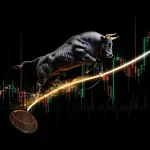
June 29, 2024
What is a Paradox? Deciphering Life’s Enigma for Peace and Understanding
Introduction:
A paradox is a statement or concept that seems self-contradictory yet may be true. It is a powerful tool for understanding the world, challenging conventional wisdom and encouraging deeper reflection on our assumptions. This essay explores the concept of paradox in the laws of life and the pursuit of peace, integrating insights from mass psychology, cognitive biases, and the wisdom of thinkers across millennia.
The nature of paradoxes is deeply intertwined with human cognition and decision-making. Cognitive psychologist Daniel Kahneman’s work on System 1 (fast, intuitive) and System 2 (slow, deliberate) thinking helps explain why paradoxes can be perplexing and illuminating. Paradoxes often arise when our quick, intuitive judgments (System 1) clash with more careful, logical analysis (System 2).
For example, psychologist Barry Schwartz identified the paradox of choice, which demonstrates how having more options can lead to decreased satisfaction and decision paralysis. This counterintuitive finding challenges our assumption that more choice is always better, revealing the complex relationship between freedom, decision-making, and happiness.
The Laws of Paradox: A Guide to Life
The laws of paradox provide a unique lens through which to perceive and navigate life’s complexities. These laws, deeply rooted in life’s paradoxes, prompt us to reevaluate our notions of success, failure, desperation, and commitment.
Ancient Chinese philosopher Lao Tzu (6th century BC) observed, “When I let go of what I am, I become what I might be.” This paradoxical wisdom suggests that embracing uncertainty and relinquishing control can lead to personal growth and success. This aligns with modern psychological concepts like “psychological flexibility,” which are associated with better mental health and life outcomes.
In investing, legendary investor George Soros’s theory of reflexivity embodies paradoxical thinking. Soros argues that market participants’ biased views can influence the fundamentals they are trying to assess, creating a feedback loop that challenges traditional notions of market efficiency. This paradox has profound implications for understanding financial markets and decision-making under uncertainty.
Examples of paradoxical thinking in action:
1. The Paradox of Skill: As skill levels in a field increase, luck becomes more important in determining outcomes. This is evident in professional sports, where the difference between top athletes is often minimal, making random factors more decisive.
2. The Paradox of Tolerance: Philosopher Karl Popper noted that unlimited tolerance might lead to the disappearance of tolerance. This paradox challenges us to think critically about the limits of openness in maintaining a free society.
3. The Paradox of Value: Also known as the diamond-water paradox, this economic concept questions why diamonds are more expensive than water despite water being essential for life. It reveals the complex interplay between scarcity, utility, and perceived value.
By embracing these paradoxical insights, we can develop a more nuanced understanding of the world around us. The laws of paradox encourage us to question our assumptions, consider alternative perspectives, and find balance in seemingly contradictory ideas. This approach can lead to more effective problem-solving, better decision-making, and a deeper appreciation for the complexities of life.
The First Law: The Harder You Try, the More Likely You Will Fail
This law introduces a counterintuitive principle that aligns with the concept of “analysis paralysis” in cognitive psychology. Psychologist Barry Schwartz’s research on the “paradox of choice” (2004) demonstrates that an abundance of options can lead to anxiety and reduced satisfaction with our decisions.
This paradox manifests in investing in the phenomenon of overtrading. Technical analysis shows that excessive trading often leads to poorer performance due to increased transaction costs and emotional decision-making. Instead, as legendary investor Warren Buffett advises, “The stock market is a device for transferring money from the impatient to the patient.”
The Second Law: When in Doubt, Sit Out
This law underscores the power of patience and introspection during uncertainty. It aligns with the concept of “decision fatigue” in cognitive psychology, which suggests that the quality of our decisions deteriorates after making many decisions.
Ancient Greek philosopher Socrates (470-399 BC) acknowledged our ignorance: “I know that I know nothing.” This paradoxical stance encourages humility and careful consideration before action.
The Third Law: Desperation Leads to Deadly Outcomes
This law warns against desperation-driven decisions that often stem from cognitive biases such as the “sunk cost fallacy” or “loss aversion.” These biases can lead investors to hold onto losing positions or make risky bets to recover losses.
Stoic philosopher Epictetus (55-135 AD) offered a paradoxical approach to managing desperation: “It’s not what happens to you, but how you react to it that matters.” We can make more rational decisions even in challenging circumstances by cultivating emotional resilience.
The Fourth Law: Never get into something with the thought, “I don’t have enough money or time to put into this project.”
This law highlights the importance of commitment and proper resource allocation. It relates to the psychological concept of “self-fulfilling prophecy,” where our beliefs about a situation can influence its outcome.
Benjamin Franklin (1706-1790) paradoxically noted, “Time is money.” This suggests that while we may feel we lack resources, time itself is a valuable asset that, when invested wisely, can yield significant returns.
The Fifth Law: Failure Is the Stepping Stone to Success
This law reframes failure as an opportunity for growth, challenging the cognitive bias of “fear of failure.” In mass psychology, this fear can lead to market panics and irrational sell-offs, creating opportunities for contrarian investors.
Thomas Edison (1847-1931) famously said, “I have not failed. I’ve just found 10,000 ways that won’t work.” This paradoxical view of failure as progress embodies the growth mindset essential for long-term success.
Failure and Peace: A Paradoxical Relationship
The relationship between failure and peace is paradoxical. Accepting failure as part of the journey towards success can lead to inner peace. This aligns with the psychological concept of “post-traumatic growth,” where individuals experience positive change following challenging life crises.
Conclusion: The Power of Paradox
Paradoxes challenge us to see beyond surface appearances and adopt a more nuanced understanding of life. They reveal that success often comes from embracing failure, that peace can be found in accepting life’s uncertainties, and that true wisdom lies in acknowledging our limitations.
As we navigate life’s complexities, embracing paradoxes can lead us to greater resilience, adaptability, and success. In the words of physicist Niels Bohr (1885-1962), “How wonderful that we have met with a paradox. Now we have some hope of making progress.”
By integrating these paradoxical insights with a modern understanding of psychology and market behaviour, we can develop a more comprehensive approach to life’s challenges, fostering personal growth and financial success.












